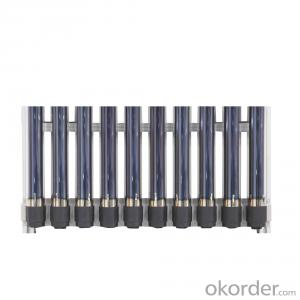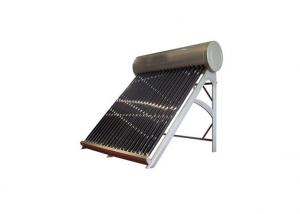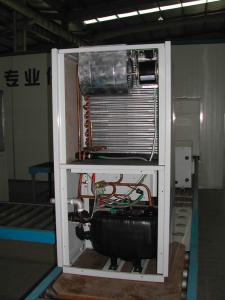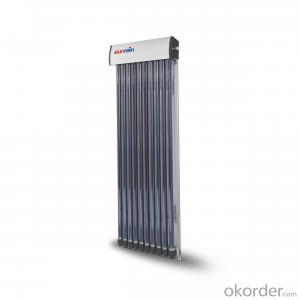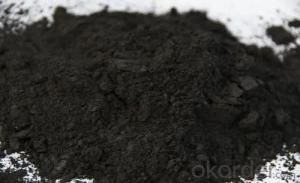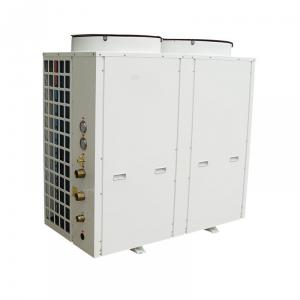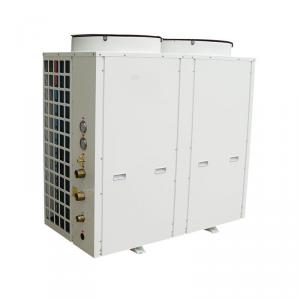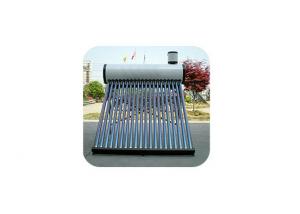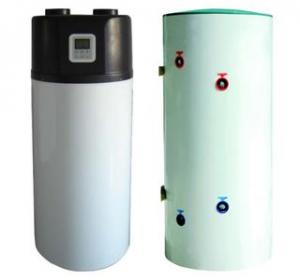Multifunctional Heat Pump
- Loading Port:
- China Main Port
- Payment Terms:
- TT OR LC
- Min Order Qty:
- -
- Supply Capability:
- -
OKorder Service Pledge
Quality Product, Order Online Tracking, Timely Delivery
OKorder Financial Service
Credit Rating, Credit Services, Credit Purchasing
You Might Also Like
| Type | Multifunctional /Domestic |
| Heating capacity | 5.0kw~21kw |
| COP | ≥3.5 |
| Rated water temp. | / |
| Running ambient temp. | -25~43℃ |
| Compressor | Rotary |
| Refrigerant | R410a |
| Power supply | 220-240~/50/1 |
| Certification | CE |
Features
High efficiency DC inventer compressor of famous brand.
EEV optimize the refrigerant flow.
Wide working temperature range down to -25℃.
Water pump inside.
Intertek efficiency testing report proves its high COP.
With compressor crankcase heater and bottom plate heater.
- Q:Can a solar water heater be used in areas with limited access to energy policies?
- Yes, a solar water heater can be used in areas with limited access to energy policies. Solar water heaters rely on sunlight to heat water, so as long as there is sufficient sunlight available, they can operate effectively. They do not require the same infrastructure or access to energy policies as traditional water heaters, making them a viable option for areas with limited energy resources or policies in place. Additionally, solar water heaters can help reduce reliance on fossil fuels and contribute to energy independence in such areas.
- Q:What are the advantages of using a solar water heater?
- There are several advantages to using a solar water heater. Firstly, it helps to reduce energy consumption and dependence on fossil fuels as it harnesses the sun's free and renewable energy. This can lead to significant cost savings on electricity or gas bills. Secondly, solar water heaters are environmentally friendly, producing lower greenhouse gas emissions compared to traditional water heaters. Additionally, they require minimal maintenance and have a longer lifespan, resulting in reduced overall costs and a smaller carbon footprint. Finally, solar water heaters can be a reliable source of hot water even during power outages, ensuring a continuous supply.
- Q:Can a solar water heater be used in areas with limited access to local suppliers or distributors of solar equipment?
- Yes, a solar water heater can be used in areas with limited access to local suppliers or distributors of solar equipment. Solar water heaters are relatively simple systems that can be constructed using readily available materials and basic plumbing skills. In fact, many DIY (do-it-yourself) guides and tutorials are available online for building homemade solar water heaters. Additionally, there are organizations and non-profit groups that promote the use of solar energy in developing regions or remote areas. These organizations often provide assistance, training, and resources for individuals or communities to build their own solar water heaters. They may also offer guidance on maintenance and troubleshooting. Furthermore, some companies specialize in manufacturing and distributing solar water heaters specifically designed for off-grid or remote locations. These systems are often designed to be durable and low-maintenance, making them suitable for areas with limited access to spare parts or technical support. Overall, while limited access to local suppliers or distributors of solar equipment may pose some challenges, it is still possible to utilize solar water heaters in such areas through DIY construction, assistance from organizations, or specialized products designed for off-grid settings.
- Q:How does a solar water heater affect carbon footprint?
- A solar water heater can have a significant impact on reducing carbon footprint. Unlike conventional water heaters that rely on non-renewable energy sources like gas or electricity generated from fossil fuels, solar water heaters utilize the sun's energy to heat water. This means that they produce zero greenhouse gas emissions during operation, resulting in a substantial reduction in carbon emissions. By using solar energy, a water heater can help to offset the reliance on fossil fuels for heating water, which is one of the most energy-intensive processes in many households. According to the U.S. Department of Energy, water heating can account for up to 18% of a home's energy consumption, leading to a substantial carbon footprint. By switching to a solar water heater, this energy demand can be met with clean and renewable energy, resulting in a significant reduction in carbon emissions. Additionally, solar water heaters are highly efficient and can provide hot water throughout the year, even in colder climates. This reduces the need for backup heating systems, further reducing the overall energy consumption and carbon emissions associated with water heating. Furthermore, the installation of a solar water heater can also have a positive impact on local communities and the environment. By promoting the use of renewable energy, it helps to reduce the demand for non-renewable energy sources, which in turn reduces the extraction and burning of fossil fuels. This leads to a decrease in air and water pollution, as well as the associated negative health effects. In summary, a solar water heater significantly reduces carbon footprint by utilizing clean and renewable energy to heat water, reducing the reliance on fossil fuels and lowering carbon emissions. It is an effective and sustainable solution to reduce environmental impact and promote a greener future.
- Q:Can a solar water heater be used in areas with frequent power outages?
- Yes, a solar water heater can be used in areas with frequent power outages. Solar water heaters rely on sunlight to heat the water, so they do not require electricity to function. As long as there is enough sunlight, the solar water heater will continue to heat the water, providing a reliable source of hot water even during power outages.
- Q:Better effect of the kind of
- Of course, not afraid of cold, how many days nobody home (tourism, visiting relatives) do not have to worry about the problem of solar give you trouble, this function may not use the south, but can make the lower floors of the water users, and pipeline emptying after being very light, can be appropriate to extend the life of. Golden solar energy and mechanical automatic function, easy to use (all the solar energy can be installed automatic computer), a solar energy problem you can continue
- Q:Can a solar water heater be used in areas prone to earthquakes?
- Yes, a solar water heater can be used in areas prone to earthquakes. However, it is essential to ensure that the installation is done properly to withstand seismic activities. Reinforcements, such as securing the system to the ground or building, can be implemented to minimize the risk of damage during an earthquake. Additionally, using flexible pipes and proper insulation can help prevent potential leaks or ruptures. Regular maintenance and inspections are crucial to identify any potential weaknesses and ensure the system's continued safe operation.
- Q:How does a solar water heater work?
- A solar water heater works by harnessing the energy from sunlight to heat water. It consists of a collector, storage tank, and a circulation system. The collector, usually made of glass or metal, absorbs the sunlight and transfers the heat to a fluid (usually water or a mixture of water and antifreeze). The heated fluid then flows through pipes or coils in the storage tank, transferring the heat to the water inside. This heated water is then available for use in showers, faucets, or any other hot water demand.
- Q:What are the common installation mistakes with a solar water heater?
- Some common installation mistakes with a solar water heater include improper positioning or orientation of solar panels, inadequate insulation of pipes and storage tanks, incorrect sizing of the system, poor sealing or leakage in the plumbing connections, and insufficient maintenance and monitoring of the system.
- Q:Can a solar water heater be used in areas with limited access to natural gas pipelines?
- Yes, a solar water heater can definitely be used in areas with limited access to natural gas pipelines. Solar water heaters do not require any natural gas supply as they rely on the sun's energy to heat the water. They have solar collectors that absorb the sun's rays and convert them into heat, which is then used to warm the water in the system. This makes solar water heaters an excellent choice for locations where natural gas pipelines are not available or accessible. By utilizing renewable energy from the sun, solar water heaters offer a sustainable and cost-effective alternative for heating water in such areas.
1. Manufacturer Overview |
|
|---|---|
| Location | |
| Year Established | |
| Annual Output Value | |
| Main Markets | |
| Company Certifications | |
2. Manufacturer Certificates |
|
|---|---|
| a) Certification Name | |
| Range | |
| Reference | |
| Validity Period | |
3. Manufacturer Capability |
|
|---|---|
| a)Trade Capacity | |
| Nearest Port | |
| Export Percentage | |
| No.of Employees in Trade Department | |
| Language Spoken: | |
| b)Factory Information | |
| Factory Size: | |
| No. of Production Lines | |
| Contract Manufacturing | |
| Product Price Range | |
Send your message to us
Multifunctional Heat Pump
- Loading Port:
- China Main Port
- Payment Terms:
- TT OR LC
- Min Order Qty:
- -
- Supply Capability:
- -
OKorder Service Pledge
Quality Product, Order Online Tracking, Timely Delivery
OKorder Financial Service
Credit Rating, Credit Services, Credit Purchasing
Similar products
New products
Hot products
Related keywords
